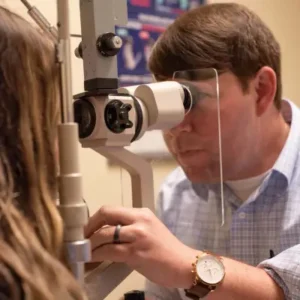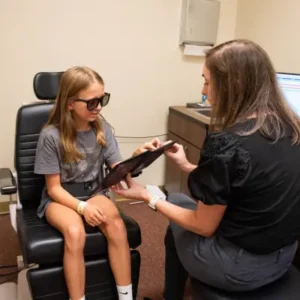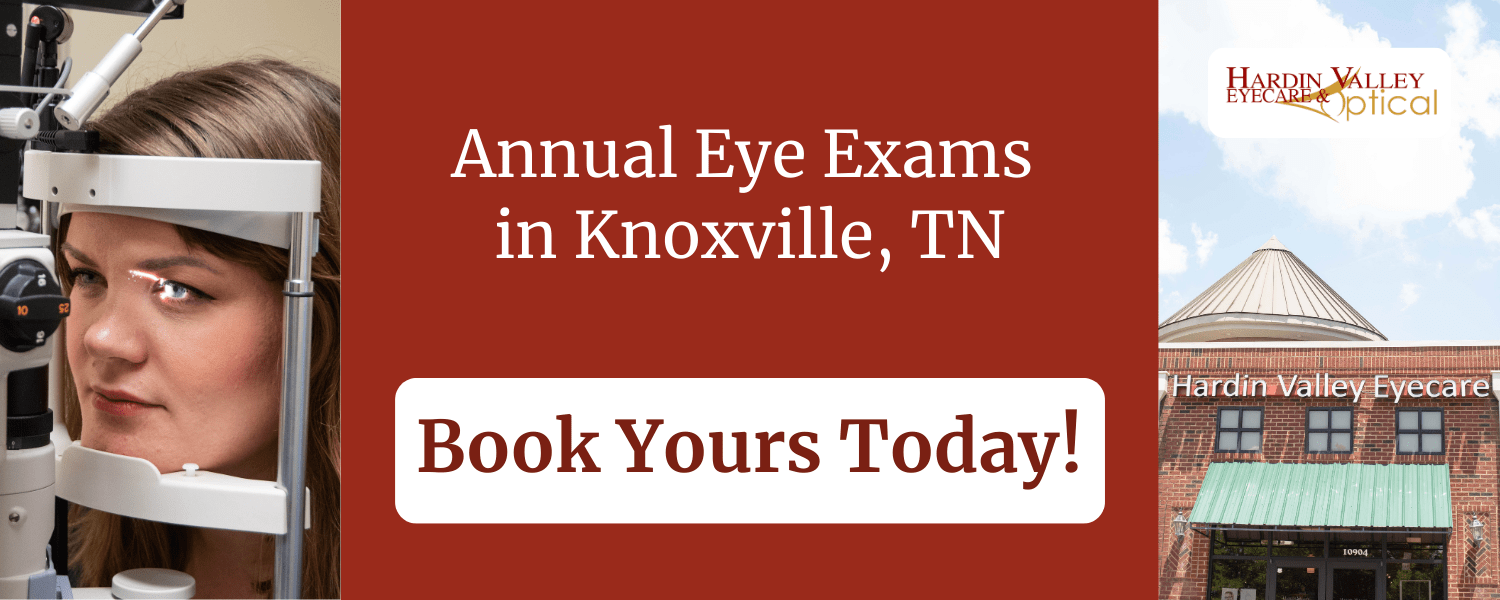Deciding whether a yearly eye exam is worth it or not is a common consideration for a lot of people. While some may think these check-ups are unnecessary if they have good vision, there are important reasons to consider making them a regular part of your preventative healthcare routine.
Yearly eye exams are vital for maintaining vision and overall health. They support early detection of eye diseases and systemic issues like diabetes and hypertension, as well as enhance quality of life. Skipping exams can lead to serious, costly problems, making regular check-ups essential for effective preventive care and long-term well-being.
The Importance of Eye Exams
Yearly eye exams are crucial for maintaining optimal vision as well as overall health. They typically include several tests to

evaluate:
- Visual acuity
- Refractive errors
- The health of the eye structures
This process often involves reading an eye chart along with pupil dilation to examine the retina and optic nerve. Tests for eye pressure and focusing abilities may also be included.
Beyond vision correction, comprehensive eye exams serve as a vital health check. Regular eye examshelp in identifying potential health issues before they escalate, making them an essential part of preventive healthcare. They can detect early signs of serious health conditions, including certain cancers, which may not present symptoms until significant damage has occurred.
By prioritizing yearly visits to an eye care professional, individuals can safeguard their eyesight and gain insights into their overall well-being.
Benefits of Yearly Eye Exams
Yearly eye exams are vital for the early detection of eye diseases like glaucoma, cataracts, and macular degeneration, which can lead to vision loss if unnoticed. They also reveal systemic health issues such as diabetes and hypertension. Clear vision significantly enhances quality of life, promoting independence and participation in daily activities.
Early detection of eye diseases
Early detection of eye diseases is a significant benefit of yearly eye exams. Many serious conditions, such as glaucoma, cataracts, and macular degeneration, develop gradually without noticeable symptoms.
For instance, glaucoma can silently damage the optic nerve, leading to irreversible vision loss if not caught early. Similarly, cataracts can cloud vision over time, but early intervention can restoreclarity through surgery. Macular degeneration affects central vision and can severely impact daily activities.
By identifying these conditions in their early stages, your eye doctor can implement effective treatment strategies that may prevent or minimize vision loss.
Detection of other health issues
The eyes can reveal significant insights into your overall health. For example, conditions such as diabetes and hypertension can manifest through changes in the eyes.
Diabetic retinopathy occurs when high blood sugar levels damage the small blood vessels in the retina, potentially leading to vision loss if not caught early. Similarly, hypertension can cause damage to the blood vessels in the eyes, leading to conditions like hypertensive retinopathy and increasing the risk of glaucoma.
Identifying these systemic issues during routine eye exams enables your optometrist to recommend further testing and interventions, supporting early management of these conditions.
Improved quality of life
Improved quality of life is a key benefit of yearly eye exams, as clear vision significantly impacts daily activities and personal independence. When vision is compromised, it can lead to frustration and dependency on others for assistance.
Good eyesight enables you to perform essential tasks such as reading, driving, and engaging in hobbies without difficulty. It enhances safety and efficiency in everyday life.
Risk of Skipping Eye Exams
Neglecting yearly eye exams can lead to serious, undetected vision problems that progress silently, causing irreversible damage. This jeopardizes your eye health and increases healthcare costs, as treating advanced conditions is more expensive than preventative care.
Regular check-ups support early detection and help maintain overall health while saving money. They’re also usually covered by vision insurance, making getting your yearly exam as simple as possible.
Undetected vision problems
 Skipping yearly eye exams can lead to significant long-term consequences that could have been avoided with timely care. Undetected vision problems pose a significant risk when you skip yearly eye exams since many serious conditions can develop without noticeable symptoms.
Skipping yearly eye exams can lead to significant long-term consequences that could have been avoided with timely care. Undetected vision problems pose a significant risk when you skip yearly eye exams since many serious conditions can develop without noticeable symptoms.
For instance, certain diseases often progress silently, leading to irreversible damage before you’re even aware. By forgoing regular eye exams, you’re missing out on crucial opportunities for early detection and intervention, which are essential for pr
eventing further deterioration of your vision and maintaining overall eye health.
Increased healthcare costs
Skipping yearly eye exams can also lead to increased healthcare costs due to the progression of undetected vision problems. Preventative care, such as regular eye exams, is generally less expensive than treating advanced conditions that arise from neglect. When conditions are allowed to worsen without monitoring, you often face more extensive and expensive medical care.
Patients who receive regular eye exams are less likely to incur high healthcare costs associated with complications from untreated conditions, ultimately saving money in the long run. By prioritizing preventative care through yearly eye exams, you can avoid the financial burden associated with advanced treatment and maintain better overall health.

Annual eye exams are crucial for preserving vision and overall health. They help detect eye diseases and systemic conditions such as diabetes and hypertension early, improving quality of life. Skipping these exams can result in serious, costly issues, highlighting the importance of regular check-ups for effective preventive care and long-term wellness.
Hardin Valley Eyecare & Optical has been serving Knoxville since 2009. Located at 10904 Spring Bluff Way, you can schedule an appointment online or call us at (865) 888-0892.





